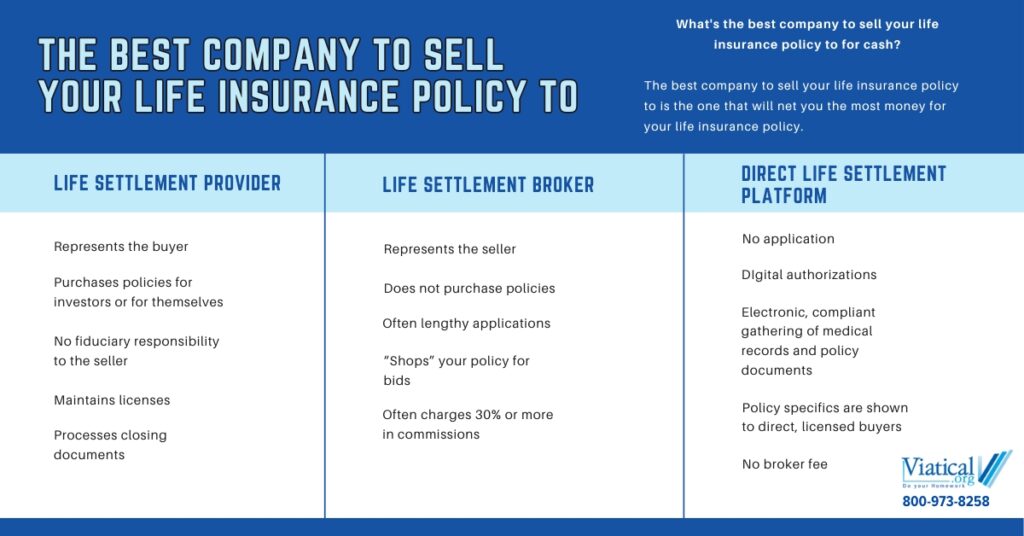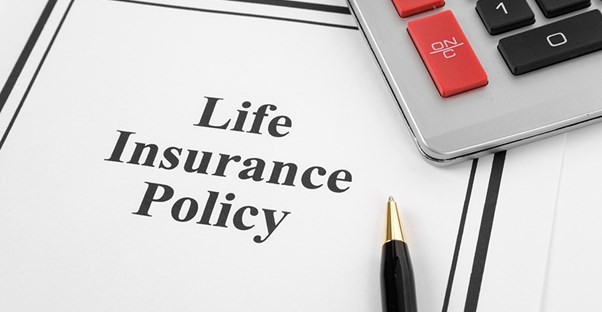Arbitration Hearing: Key Considerations for a Car Accident Case
What is Arbitration?
Let’s say you’ve been involved in a car accident that’s left you injured. You might be wondering what your options are for pursuing compensation for your damages. One of those options is arbitration, a popular form of alternative dispute resolution that has gained traction in recent years. But what exactly is arbitration, and how does it work in the context of a car accident case? We’ve got you covered.
Arbitration is a dispute resolution process where the parties in a legal conflict agree to submit their case to an impartial third party, known as an arbitrator. The arbitrator conducts a hearing where both sides present their evidence and arguments, similar to a trial. However, arbitration is often less formal and more efficient than traditional court proceedings.
In the case of a car accident, arbitration can be particularly beneficial. It offers a private and confidential forum for resolving disputes, which can be advantageous if you’re concerned about the potential impact of a public trial on your privacy or reputation. Moreover, arbitration often concludes more expeditiously than litigation, allowing you to resolve your case and receive compensation sooner.
However, it’s important to weigh the pros and cons carefully before opting for arbitration. For instance, arbitration decisions are generally binding and cannot be appealed in most cases. This means that the outcome of the arbitration hearing will be final, so it’s crucial to feel confident in the arbitrator’s fairness and impartiality.
If you’re considering arbitration for your car accident case, consulting with an experienced attorney is essential. They can guide you through the process, assess the merits of your case, and help you make the best decision for your circumstances.
Arbitration Hearing: What to Expect
If you decide to pursue arbitration, you can expect the process to proceed as follows:
- Pre-Hearing Preparation: Before the hearing, you and your attorney will gather evidence, prepare your arguments, and submit them to the arbitrator.
- Arbitration Hearing: The hearing typically takes place in a private setting, such as a conference room or mediation center. Both parties will present their cases to the arbitrator, who will question them and review the evidence.
- Closing Arguments: Once both sides have presented their cases, they will deliver closing arguments, summarizing their main points and requesting a favorable decision from the arbitrator.
- Arbitration Award: After the hearing, the arbitrator will issue an arbitration award, which is a binding decision that resolves the dispute. The arbitrator’s award will typically include a determination of liability, damages, and any other relief that the arbitrator deems appropriate.
It’s important to note that arbitration hearings are generally less formal than court trials, but they still require proper preparation and presentation. It’s advisable to seek the guidance of an experienced attorney who can effectively represent your interests throughout the process.
Benefits of Arbitration
Arbitration offers several advantages over traditional litigation, including:
- Privacy: Arbitration proceedings are private and confidential, unlike court trials, which are open to the public.
- Efficiency: Arbitration is typically more efficient than litigation, as it often takes less time to schedule and complete the process.
- Cost-Effective: Arbitration can be more cost-effective than litigation, as it generally involves lower fees and expenses.
- Flexibility: Arbitration proceedings can be tailored to meet the specific needs of the parties involved, offering greater flexibility than traditional court proceedings.
Drawbacks of Arbitration
While arbitration has its benefits, it’s important to be aware of its potential drawbacks:
- Limited Discovery: Arbitration generally involves less discovery than litigation, which may limit the parties’ ability to gather evidence.
- Limited Right to Appeal: Arbitration decisions are generally final and binding, with limited opportunities for appeal.
- Potential Bias: Arbitrators are not always impartial, and there is a risk that they may favor one party over the other.
Is Arbitration Right for You?
The decision of whether or not to pursue arbitration is a complex one. It’s important to weigh the benefits and drawbacks carefully and consult with an experienced attorney to determine the most appropriate course of action for your specific case.
If you’re seeking a private, efficient, and cost-effective way to resolve your car accident dispute, arbitration may be a viable option for you. However, if you’re concerned about the limited discovery, right to appeal, or potential bias, you may want to consider other dispute resolution options, such as mediation or litigation.
When an Arbitration Hearing Is Your Best Bet After a Car Accident
After a car accident, you may be wondering what your next steps are. If you’re dealing with insurance companies and property damage, it can be overwhelming. You may be wondering if you should file a lawsuit or go through arbitration. Arbitration is a form of alternative dispute resolution (ADR) that can be a faster and less expensive way to resolve your case. Here’s what you need to know about arbitration hearings after a car accident.
What is Arbitration?
Arbitration is a form of ADR that involves a neutral third party, called an arbitrator, who hears evidence from both sides and makes a decision. Arbitration is often less formal than a trial, and the rules of evidence are more flexible. This can make arbitration a quicker and less expensive option than going to court.
How Arbitration Hearings Work
Arbitration hearings are typically held in a private setting, such as a conference room or mediation center. The arbitrator will hear opening statements from both sides, and then each side will present its case. The arbitrator may ask questions of the witnesses and review evidence. After both sides have presented their cases, the arbitrator will make a decision. The decision of the arbitrator is usually final and binding, meaning that it cannot be appealed.
Benefits of Arbitration
There are several benefits to arbitration, including:
- Speed: Arbitration is typically much faster than going to court. This can be a major benefit if you need to resolve your case quickly.
- Cost: Arbitration is also less expensive than going to court. This is because the process is less formal and there are fewer procedural requirements.
- Flexibility: The rules of evidence are more flexible in arbitration, which can allow for a more thorough examination of the facts.
- Privacy: Arbitration hearings are typically held in private, which can be beneficial if you want to keep your case out of the public eye.
- Finality: The decision of the arbitrator is usually final and binding, which means that you can avoid the uncertainty of a jury trial.
Drawbacks of Arbitration
There are also some drawbacks to arbitration, including:
- Lack of due process: Arbitration hearings are not as formal as trials, and the rules of evidence are more flexible. This can lead to a lack of due process, which means that you may not have the same rights as you would in a court of law.
- Lack of appeal: The decision of the arbitrator is usually final and binding. This means that you do not have the right to appeal the decision if you are not satisfied with it.
- Cost: While arbitration is less expensive than going to court, it can still be costly. You will need to pay for the arbitrator’s fees, as well as the costs of your attorney.
- Lack of jury trial: If you are looking for a jury trial, arbitration is not an option. Arbitration hearings are decided by a single arbitrator, not a jury.
Arbitration Hearing: Understanding the Procedures
If you’ve been involved in a car accident and can’t reach an agreement with the other driver or insurance companies, arbitration may be an option worth considering. Arbitration is a form of alternative dispute resolution that involves presenting your case to a neutral third party, known as an arbitrator, who will make a binding decision. While arbitration hearings are typically less formal than court proceedings, they still adhere to specific procedural rules. Understanding these procedures can help you prepare for your hearing and navigate the process smoothly.
Initiating the Arbitration Process
The arbitration process typically begins when one party files a demand for arbitration with the American Arbitration Association (AAA) or another arbitration provider. The demand should include a statement of the claim and the amount of damages being sought. Once the demand is filed, the other party has a certain number of days to respond. If a response is not filed, the arbitrator may proceed with the case based on the initial demand. A discovery phase may follow, during which both parties exchange relevant documents and information.
Preparing for an Arbitration Hearing
Thorough preparation is crucial for a successful arbitration hearing. Gather all relevant evidence, including medical records, witness statements, and accident reports. Organize your materials in a clear and accessible manner, as you’ll need to present them to the arbitrator. It’s highly recommended to consult with an attorney who specializes in arbitration to guide you through the process, advise you on legal strategy, and represent you at the hearing. They can help you build a strong case and ensure your rights are protected.
Presenting Your Case
Arbitration hearings typically follow a structured format, allowing both parties to present their arguments and evidence. The claimant, the party who initiated the arbitration, typically presents their case first. They have the burden of proving their claim by presenting evidence to support their position. The respondent, the party against whom the claim is made, then has the opportunity to present their defense, including any evidence or witnesses that contradict the claimant’s arguments. Both parties may also have the opportunity to cross-examine each other’s witnesses.
The Arbitrator’s Decision
After both parties have presented their cases, the arbitrator will deliberate and issue a decision. The decision is typically binding on both parties, meaning that it is final and cannot be appealed unless there are grounds for vacating an arbitration award, such as fraud or bias. The arbitrator’s decision will generally include a statement of the findings of fact and the reasons for the decision. Once the decision is issued, the arbitration process is complete.
Arbitration Hearing: A Comprehensive Guide for Car Accident Victims
In the aftermath of a car accident, you might find yourself facing an arbitration hearing. This can be a daunting prospect, but it’s important to be well-prepared to protect your rights. Here’s a comprehensive guide to help you navigate the process seamlessly.
How to Prepare for an Arbitration Hearing
Preparing for an arbitration hearing is crucial to present your case effectively. Here are some essential steps to take:
- Gather Evidence: Collect all documents, medical records, and other evidence related to your accident and injuries. This could include police reports, witness statements, repair bills, and medical expenses.
- Prepare Witnesses: Identify witnesses who can corroborate your account of the incident. Prepare them to answer questions clearly and concisely during the hearing.
- Practice Your Presentation: Rehearse your opening statement, presentation of evidence, and closing argument. This will help you feel confident and organized during the hearing.
- Understand the Arbitration Process: Familiarize yourself with the rules and procedures that govern the arbitration hearing. This will ensure you can effectively participate and advocate for your interests.
- Dress Professionally: First impressions matter. Dress appropriately for the hearing, as it conveys a sense of respect and seriousness.
Presenting Your Case
During the hearing, you’ll have the opportunity to present your case to the arbitrator. Here’s how to make the most of this crucial moment:
- Be Clear and Concise: Present your arguments in a logical and organized manner. Avoid rambling or getting bogged down in unnecessary details.
- Provide Evidence: Support your claims with credible evidence. Present documents, call witnesses, and use any other materials that can bolster your case.
- Cross-Examine Witnesses: If the other party calls witnesses, you’ll have the opportunity to cross-examine them. Use this time to challenge their testimony and elicit information that supports your case.
Negotiating and Reaching a Settlement
After presenting your case, you may enter into negotiations with the other party. This is an opportunity to reach a mutually acceptable settlement. Here are some tips:
- Be Reasonable: Approach negotiations with a willingness to compromise. Avoid unrealistic demands or stonewalling the other party.
- Consider Your Interests: Keep your goals and interests in mind throughout the negotiations. While it’s important to be flexible, don’t compromise on essential points.
- Seek Legal Advice: If negotiations reach an impasse, consider seeking the advice of an attorney. They can provide guidance and help you protect your rights.
Conclusion
Navigating an arbitration hearing can be challenging, but by following these steps, you can improve your chances of a successful outcome. Remember, preparation is key. By understanding the process, presenting your case effectively, and negotiating strategically, you can advocate for your interests and seek justice after a car accident.
Arbitration Hearing for Car Accidents: A Comprehensive Guide
If you’ve been involved in a car accident and are considering arbitration as a way to resolve your dispute, it’s crucial to be prepared for the hearing. Here’s a comprehensive guide to help you navigate what to expect.
What to Expect at an Arbitration Hearing
Similar to a courtroom setting, an arbitration hearing is where you and the other party present your cases to a neutral arbitrator. After hearing both sides, the arbitrator will evaluate the evidence and make a decision. Unlike a trial, arbitration hearings are typically less formal and adversarial, emphasizing finding a mutually acceptable resolution.
Preparation is Key
Before the hearing, gather all relevant documents, including the accident report, medical records, and any other evidence that supports your claim. Stay organized and prepare a concise statement outlining your case. Practice answering potential questions and anticipate arguments from the other party.
At the Hearing
Dress professionally and arrive punctually. Introduce yourself confidently and present your case clearly and concisely. Be prepared to answer questions from the arbitrator and the other party. Maintain a respectful demeanor throughout the hearing, even if you disagree with their statements.
The Arbitrator’s Role
The arbitrator is a neutral third party responsible for mediating the hearing and making a decision based on the evidence and arguments presented. Arbitrators have extensive experience in resolving disputes and are committed to fairness and impartiality.
Decision and Outcome
After considering both sides, the arbitrator will make a decision that is binding on both parties. The decision typically includes a settlement amount, if applicable, and any other necessary actions. Arbitration awards are generally final and cannot be appealed in court, except in limited circumstances.
Advantages of Arbitration
Arbitration offers several advantages over traditional litigation. It’s often more cost-effective, private, and efficient, allowing for a swifter resolution than a drawn-out court process. Additionally, arbitration provides flexibility in scheduling and the ability to customize the process to meet the specific needs of the parties involved.




Leave a Reply